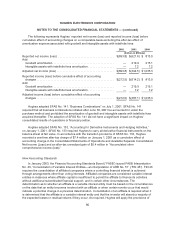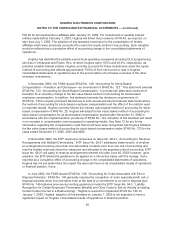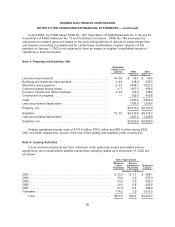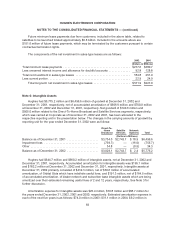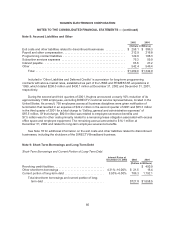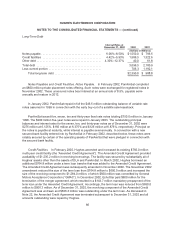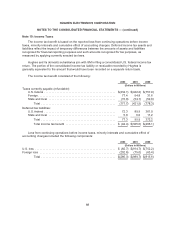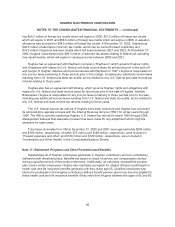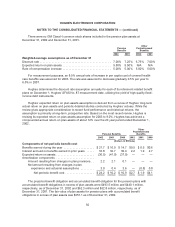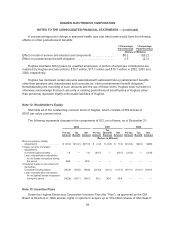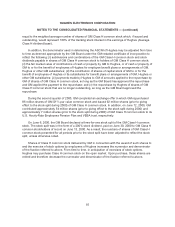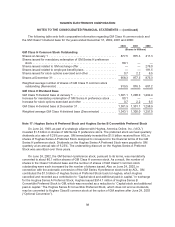DIRECTV 2002 Annual Report Download - page 100
Download and view the complete annual report
Please find page 100 of the 2002 DIRECTV annual report below. You can navigate through the pages in the report by either clicking on the pages listed below, or by using the keyword search tool below to find specific information within the annual report.HUGHES ELECTRONICS CORPORATION
NOTES TO THE CONSOLIDATED FINANCIAL STATEMENTS — (continued)
has $24.2 million of foreign tax credits which will expire in 2006, $37.2 million of foreign tax credits
which will expire in 2007 and $58.6 million of foreign tax credits which will expire in 2008. A valuation
allowance was provided for $58.5 million of foreign tax credits. At December 31, 2002, Hughes has
$46.3 million of alternative minimum tax credits, which can be carried forward indefinitely and
$14.0 million of general business credits which will expire between 2021 and 2022. At December 31,
2002, Hughes’ subsidiaries have $98.3 million of deferred tax assets relating to federal net operating
loss carryforwards, which will expire in varying amounts between 2009 and 2021.
Hughes has an agreement with Raytheon Company (“Raytheon”) which governs Hughes’ rights
and obligations with respect to U.S. federal and state income taxes for all periods prior to the spin-off
and merger of Hughes’ defense electronics business with Raytheon in 1997. Hughes is responsible for
any income taxes pertaining to those periods prior to the merger, including any additional income taxes
resulting from U.S. federal and state tax audits, and is entitled to any U.S. federal and state income tax
refunds relating to those years.
Hughes also has an agreement with Boeing, which governs Hughes’ rights and obligations with
respect to U.S. federal and state income taxes for all periods prior to the sale of Hughes’ Satellite
Businesses. Hughes is responsible for any income taxes pertaining to those periods prior to the sale,
including any additional income taxes resulting from U.S. federal and state tax audits, and is entitled to
any U.S. federal and state income tax refunds relating to those years.
The U.S. federal income tax returns of Hughes have been examined and Hughes has concluded
its administrative appeals process with the Internal Revenue Service (“IRS”) for all tax years through
1994. The IRS is currently examining Hughes’ U.S. federal tax returns for years 1995 through 2000.
Management believes that adequate provision has been made for any adjustment which might be
assessed for open years.
Total taxes receivable from GM at December 31, 2002 and 2001 were approximately $205 million
and $300 million, respectively, of which $75 million and $180 million, respectively, were included in
“Prepaid expenses and other” and $130 million and $120 million, respectively, were included in
“Investments and Other Assets” in the Consolidated Balance Sheets.
Note 11: Retirement Programs and Other Postretirement Benefits
Substantially all of Hughes’ employees participate in Hughes’ contributory and non-contributory
defined benefit retirement plans. Benefits are based on years of service and compensation earned
during a specified period of time before retirement. Additionally, an unfunded, nonqualified pension
plan covers certain employees. Hughes also maintains a program for eligible retirees to participate in
health care and life insurance benefits generally until they reach age 65. Qualified employees who
elected to participate in the Hughes contributory defined benefit pension plans may become eligible for
these health care and life insurance benefits if they retire from Hughes between the ages of 55 and 65.
90


